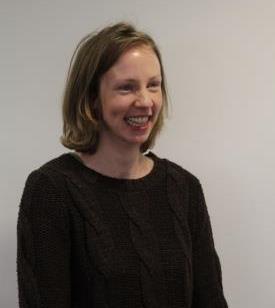
As part of this year’s Biology Week celebrations, organised by the Society of Biology, we interviewed Elizabeth Moylan, Biology Editor here at BioMed Central and asked her about what first got her interested in biology and how she ended up working in publishing.
Tell us about what first got you interested in biology, and what you went on to study.
I can’t really remember a ‘light bulb’ moment where I fell in love with the subject so to speak. I guess growing up, the natural world is all around you and it was just fascinating to find things out.
I liked messing around in the garden, and enjoyed all those Attenborough programmes, and at school biology lessons were fun! I still remember those classic experiments, counting bugs and plants in a quadrat, covering a leaf with black paper and seeing what happened. I also had a fondness for the teachers and the fieldtrips.
At high school I chose Science subjects because I was vaguely interested in medicine at this stage and doing something ‘worthy’. However, I soon discovered I was too squeamish. I went on to study Biological Sciences at the University of Oxford. I particularly enjoyed the Green Plants option (the other extreme to medicine!) and learning about how species were related. DNA sequencing was revolutionising taxonomy at the time… and now it’s all about genome sequencing…
I did an undergrad project which took me to the Shetland Islands and then I was lucky enough to do a PhD with Robert Scotland sorting out the taxonomy and evolutionary relationships of a group of plants in the Philippines. I really liked the detective work involved in building phylogenies and there were a few surprises along the way. After that I did a post-doc with Jane Langdale which was much more along ‘evo-devo’ lines investigating the evolution of genes which govern chloroplast development.
What made you want to move over from research to publishing?
The natural next step from my post-doc would have been another post-doc and a shot at leading a group but I wasn’t cut out for that. I remember thinking what on earth do I do now?
That’s when I decided to apply for a job in publishing (editorial) with a hope that I could still use my science to handle manuscripts, select peer reviewers, fix issues that arose during peer review and highlight some great science along the way. So I applied for a job as an Assistant Editor at BioMed Central in November 2004, rather green around the gills and not having a clue what open access was!
What do you do at BioMed Central, and how does it use your biology training?
I’m now part of a team of Biology and Medical editors who work closely with in-house and external editors to resolve any issues that come up during peer review or after an article is published.
There’s never a dull moment! Sometimes my biology knowledge helps with a particular issue (e.g. appreciating why peer reviewers have different views on a topic). And it’s very rewarding to widen the reach of interesting discoveries via our online magazine Biome and our annual Research Awards which recognise outstanding science.
Of course some background biology knowledge also helps with keeping in touch with various fields to make sure our editorial policies are up to date and moving with the times. It’s quite fascinating to see all the innovations in peer review that are coming out of biology too with Peerage of Science, Axios Review and Academic Karma, all of which are trying to make the peer review process more efficient in their various ways. These initiatives simply didn’t exist 10 years ago!
It’s also fun to ask questions and examine the various facets of peer review and use some of those old research skills. And then I’m invariably reminded of the Red Queen Hypothesis and all the running we do to stay in the same place… I guess that’s biology for you!
Comments